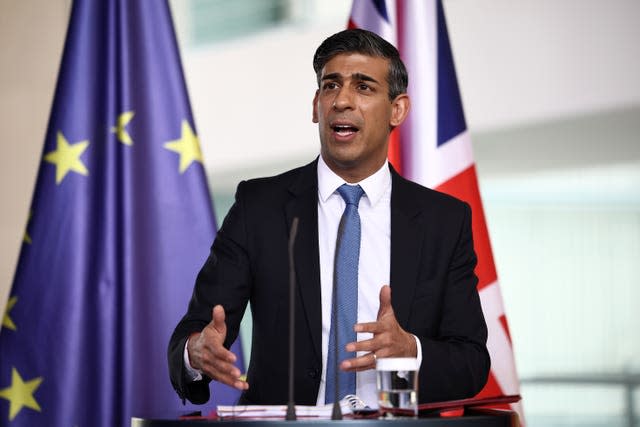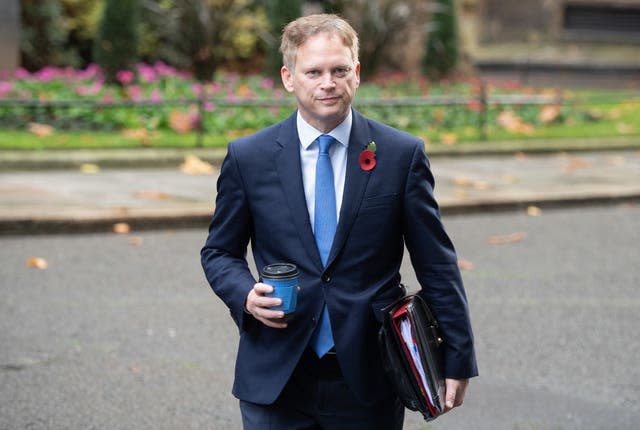Ex-Nato boss challenges Government on ‘veracity’ of defence spending increase
A former Nato secretary general has challenged the Government on the “veracity” of its defence spending increase.
Labour peer Lord Robertson of Port Ellen, who was also UK defence secretary in the 1990s, noted that economists have questioned the document laying out how the money will be raised.
He quoted the Resolution Foundation, which said the idea that this defence budget is fully funded is “a joke”, while a spokesperson for the Institute for Fiscal Studies said it will be “in the ball park of full throttle austerity”.

Lord Robertson said: “Since we are not laughing, and these matters are of national and international importance, can the minister now tell us precisely what is the veracity of the figures that have been produced?”
The former Nato boss told the House of Lords: “All of us will welcome any increase in defence expenditure at a time of maximum turmoil and trouble in the world…
“But these increases in defence expenditure only matter in terms of the capability they will produce – and that very much depends on whether or not these figures are actually accurate, and is the contention that they are fully funded going to be correct.
“Many of the economists and experts outside, having looked at the figures overnight, are questioning very deeply the veracity of the figures.”
Meanwhile, former top diplomat Lord Kerr of Kinlochard said that former defence secretary and chancellor Dennis Healy “would have found it impossible to accept the construction of £75 billion” and would “never have tried such odd accounting”.
He asked the Government to confirm that the £75 billion figure was reached “only by making the rather ludicrous assumption that the baseline is flat in cash terms, no increase in real terms – reductions in real terms – in every year of the six-year period”.
He said: “That is the baseline on which one can add annual increments summing to £75 billion.”
He said that Peter Carrington, a former defence secretary and later Nato general secretary, would have argued that “it is unwise not to prepare the country for a certain amount of pain”.
He explained: “The Government is trying to present necessary defence increases as painless.
“It might be better to admit that there will be a cost, either in taxation or in less money for domestic programmes – but the defence of the realm is the first task of government.”
Defence minister the Earl of Minto responded that, on the issue of financial detail it is “quite a complicated thing” and said he felt it would be better to respond to peers in writing after the debate and “explain how the figures are built up”.

He added: “Of course, the importance of getting the figures right and where the money is actually coming from is critical to the success of the entire endeavour.
“The detail is such that I would rather write than try to answer it now but there is no doubt that the commitment to this level of expenditure has been made and will be delivered.”
On the question of pain for the British public, he said: “It is clearly an ask of the British public – the cake is finite and defence needs more.
“It’s not an inconsiderable amount of money that we are increasing the defence budget by and there is a question of how much money you can spend over a period of time.
“It’s a bit like building a house, you can’t spend it all at once.”
Lord Kerr also castigated Defence Secretary Grant Shapps for his “absurd talk” around leading Nato in a week when the US promised huge support for Ukraine.
He said: “It is also absurd, in the week in which President Biden and Speaker Johnson have come forward with a rather substantial programme of assistance to Ukraine for our Defence Secretary to stand up and say that the Nato partners looked at each other for leadership, and the UK Government stepped forward to provide the alliance with the decisive leadership in this knife-edge moment, and in the build-up to the Nato summit in Washington, he, Mr Shapps, will be doing all he can do to get alliance members to follow our lead.”
He advised the Government to “speak softly and carry a big stick” and “avoid the bluster and bravado, and speak more sensibly”.


